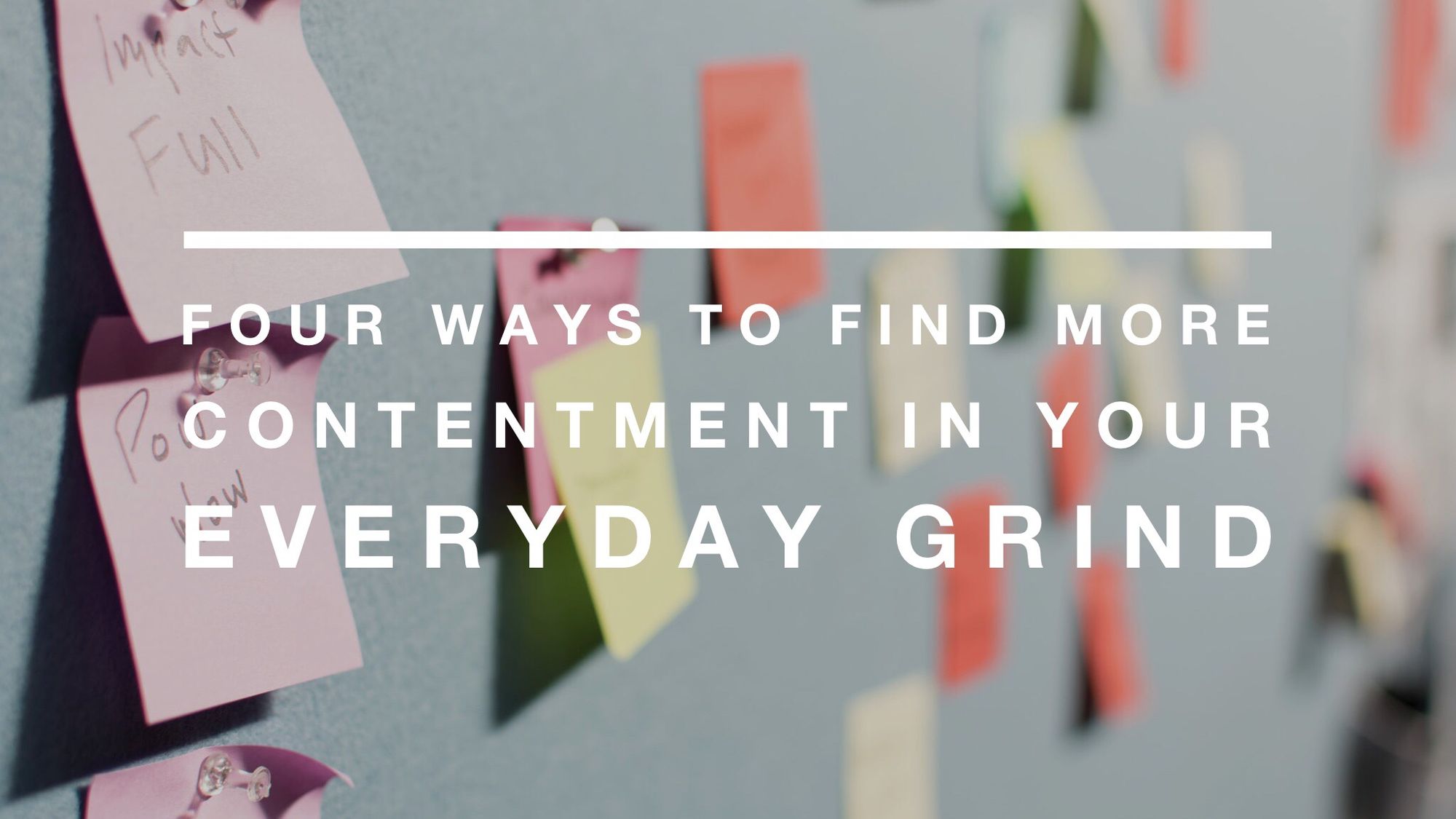Do you scroll through people's perfectly-curated Instagram feeds and feel like your life sucks? That you'd be so much happier if you could just get that dream job or lose 20 pounds?
This one's for you.
In yogic philosophy, the word Santosha basically translates as “contentment.”
This isn’t contentment as in, Hey, let’s sprawl out on the couch eating donuts and bingeing on Netflix for the next five hours.
It’s not contentment as in Eh, my life is pretty decent as it is, so why bother learning a new language or playing piano or planting a garden or traveling to Greece?
This is contentment, as in looking around at your perfectly-imperfect life, waking up to the little graces, and being ok with it, instead of constantly seeing happiness over there, once you get that body or that car or that job or that partner or that kid.
Buddhist scholar David Loy calls this grass-is-always-greener phenomenon LACK. It’s the ubiquitous, unsettling sense that there’s something intrinsically missing, a perpetual void, always the experience of not enough. That if you just buy this moisturizer or that Tesla or that pair of sneakers, you’ll be lovable, you’ll be popular, you’ll be complete.
We all know that’s not true.
Because as soon as you get the Tesla, you’ll want the newer model. And as soon as you get the McMansion, you’ll want the one with the pool next door.
So we practice cultivating contentment.
Here are 4 things you can do to find more santosha in your everyday:
1. Sit on a bench with a cup of coffee in your hands.
Take a seat anywhere: a park bench, your front stoop, a random tree stump. Close your eyes. Inhale a deep breath and feel the sun on your face. Look around at your surroundings, elegant or gritty, and say to yourself, in spite of anything going down in your life right now (and we know there’s always something going down):
“It is enough.”
It seems so clichéd, I know. But in this culture, practicing enoughness is quite radical. It’s a countercultural move.
The truth is, wherever you are, there will be struggles, and there will be joys.
Your job is to find the middle ground. So you pause and take a moment to look around and say, “It is enough.” Because even if you’re living in a van down by the river, there’ll still be aspects of an everyday grind. And it’s up to you to re-vision them.
2. Notice the things you usually blow right by.
Using fresh eyes, see all the little things you usually take for granted.
An easy way to do this is to walk on the different side of the street. You always stroll to the grocery store the same way? Cross to the shady side. It’s a brand-new experience. An alternate universe. Turning off the cruise control and stepping into your right-now life.
Read the signs on the shop awnings. Notice the house numbers on the little bungalow down the street. Walk inside that antique shop you usually run right by. You’ll be surprised by how much you usually miss.
3. Before every meal, say three things you’re grateful for.
Even if you’re not into praying, this is a simple way to work in a little santosha. Your three things can be mundane or dramatic, anything from the burrito in front of you to the Affordable Care Act. It’s a sweet, playful way to get to know your dining companions a little better, too.
You can do this on your iPhone, too, using your Notes app. Just jot down thoughts as they come to you. Or you can go old-school and carry a notebook and pen around with you. Sit down and scrawl “In this moment, I am thankful for…” and then just let the pen run wild.
4. Sprawl out in savasana.
Let your palms fall open and your feet flop. Settle your weight and drop in. For maybe the first time today, notice the miracle of your heart beating in your chest and your lungs breathing, without you having to tell them to do so. Know that you are alive, and you won’t always be.
This body will be a corpse.
So, in this very moment, just let your aliveness be enough.
For a decade now, I’ve offered the same blessing at the end of each yoga class. It goes like this, palms in prayer:
“Inhaling, we lift our hearts, and
Exhaling, we bow forward,
In very simple gratitude:
For this body, this breath, this moment, this life,
For, as the yoga reminds us: each of these will pass.
That we might never take any of those breaths, or any of those moments — even, and especially, the most awkward and challenging ones — for granted.”
Isn’t it hard? I mean, damn. Don’t we just want to get past those difficult moments as quickly as possible?
But not really. (The alternative, of course, is that we’re dead.)
If you’ve ever had a broken limb before, you get this. The revelation and immense gratitude you feel after getting your cast off, or throwing out the crutches and walking down the stairs again by yourself.
A decade ago, living in San Francisco, I sprained my ankle. I tromped around miserably in a walking cast for several weeks, bartended in that beer-covered boot, and sat in the back row of a yoga class and faked my way through the whole thing on the floor.
When I finally took that boot off for good, I felt so deeply grateful for my foot, for my unhindered mobility. I promised myself I’d never again take for granted the ability to carry my groceries up the street or climb the stairs or go to work.
(Of course, now, I do. Which is exactly why we practice.)
We forget the preciousness of this life so quickly.
Stay woke. It's so short.
Every day, waking.
An earlier version of this essay first appeared on Yoga Trade.

